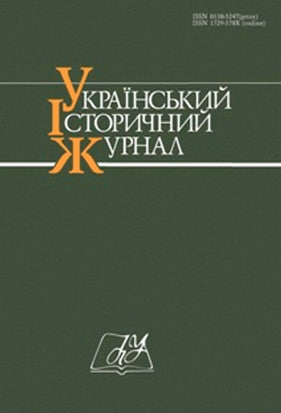The Problem of Women’s Service in the British Army During World War II: An Analysis of W.Churchill’s Public Discourse
DOI:
https://doi.org/10.15407/uhj2021.01.073Keywords:
Churchill, status of women, World War II, British Army, women’s auxiliary organizations, gender relationsAbstract
The aim of this article is to analyse Winston Churchill’s public discourse in the 1930s and 1940s on the recruitment of women into the army. Its result will not only supplement his biography, but also make it possible to find out, firstly, how he, as a media personality, formed public discourse, and secondly, what influence as the head of government, a person endowed with broad powers, he influenced British gender regime in the 1940s.
The research methodology is based on the principles of historicism and multifactoriality. The authors used both general scientific (analysis and synthesis, induction and deduction, generalization) and special-historical (critical analysis of sources, retrospective, historical-comparative) research methods, as well as a gender approach.
The scientific novelty. In the paper W.Churchill’s attitude to the service of women in the army for the first time is the subject of the study. This problem was briefly explored in the Western historiography, where there are still many dubious statements about it, based on a one-sided study of available sources.
Conclusions. Based on the analysis of Churchill’s public statements and published works, as well as his government’s main actions in the context of women’s service, the authors concluded that he was critical on official permission for them to use arms and fight. Churchill’s public discourse on women serving in the army was within the patriarchal view of them as weak and peaceful creatures who could not and, most importantly, should not compete with the male half of the population. Actively using the work of women in the auxiliary services during the war, the politician allowed himself tactless remarks addressed to them after the end of hostilities.


